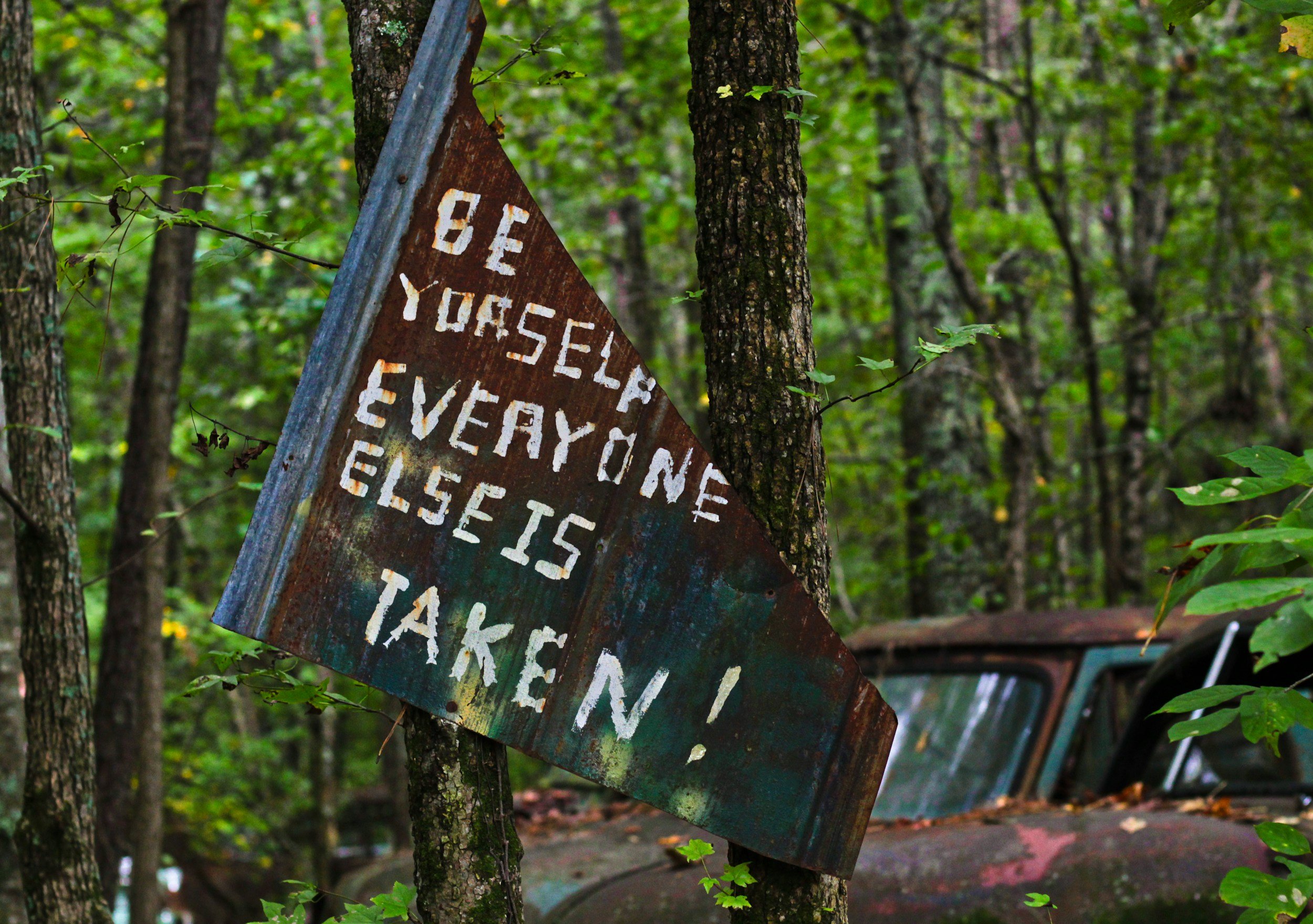
Feeling Lost: My Journey from Teaching to Finding Myself
Do you feel so lost in life, like nothing is going right for you? Maybe it’s even the darkest time you’ve ever had. I can totally relate because I was there too. Back in 2014, I left my teaching career, and I just felt so alone and like a failure. I didn’t think there was anything worth living for after that, even though, from the outside looking in, I had it all. I had a beautiful house, a loving husband, two beautiful girls, nice cars, college degrees—you know, the “white picket fence lifestyle.” But it just felt like there was something missing.
In this blog, I’m going to share with you the three reasons why I felt lost, and I hope that they help you on your journey. Make sure you keep reading because I think the third reason is going to be the most surprising!

Are You Repeating Childhood Patterns Today? Let’s Find Out!
The way we live our childhood can profoundly impact our beliefs about ourselves, others, and the world, and eventually, that permeates into our relationships. I bet you’ve had at least one relationship in your life where you felt that everything was so familiar, it was easy to read through them, you always knew how to solve the problems because you already went through some of those with your parents, or you saw the way they used to get along and you 100% understood how “normal relationship dynamics worked”. If you’re a bit more aware of the fact that something was wrong back then you might have wondered if your adult relationships are a replay of your childhood ones. Let me tell you, chances are, they probably are to some extent, and maybe you don’t even know it.
Let’s dive deeper into this topic to see if unhealed childhood trauma is sneaking into your life - and what you can do to leave the past in the past!

Healing Trauma with Mindfulness: Three Simple Practices
Healing is a process that takes time, and mindfulness is a tool you can use every step of the way. By practicing mindfulness, you’re creating new patterns grounded in peace, self-compassion, and a sense of safety. These new patterns replace those grounded in fear, anxiety, or anger. If you’re looking for more information on your healing journey, consider exploring resources on confronting your past for true healing with the support of a therapist, energy healer, or coach. Remember, mindfulness is a powerful ally in your journey towards healing and self-discovery!

Common Mistakes on the Healing Journey- and How to Fix Them
The healing journey is unique for each individual, and it’s natural to encounter challenges along the way. By recognizing and addressing these common mistakes, you can navigate your path with greater awareness and resilience. Remember, healing is a continuous process of growth and self-discovery. Embrace the journey, be patient with yourself, and celebrate every step forward.

The Seven Stages of Healing: My Journey Through Emotional Recovery
Embarking on a healing journey is a profound and deeply personal experience. It’s not a linear path but rather a winding road with many twists and turns. In this blog, I want to share the seven stages I encountered during my healing journey, and most likely you’ll find them too. In my experience, these stages don’t necessarily follow a specific order, and you may find yourself revisiting some stages multiple times. Understanding these stages can help you navigate your own healing process with greater awareness and compassion.

The Chameleon Effect: Adapting After Childhood Trauma
Childhood trauma shapes our beliefs and behaviors in profound ways. By understanding and challenging these beliefs, we can begin to heal and reclaim our sense of self-worth. It is a journey of self-discovery and empowerment, allowing us to shine brightly and authentically in the world.

Building Up Instead of Tearing Down: Understanding the Dynamics of Insecurity and Self-Esteem
In our interactions with others, we often encounter situations where people try to tear us down instead of building us up. This behavior is usually rooted in their own insecurities and low self-esteem. We may have been that person and didn’t even notice. Understanding this dynamic can help us navigate interactions more effectively and foster a more supportive environment. Let’s dive deeper into it!

Breaking the Cycle: How Unhealed Childhood Trauma Affects Adult Relationships
Are you repeating the cycle of the relationship you had with your caregiver in childhood now as an adult? Chances are, you probably are, and you don’t even know it. Let’s explore some signs of how unhealed childhood trauma can affect your adult relationships – and what I did to leave them behind!

Confronting Your Past is True Healing: From Burnout to Breakthrough
Confronting my past trauma was daunting, but it was necessary for my healing. I realized that you can do the work without re-traumatizing yourself. It’s crucial to face the skeletons in your closet, confront the past, and move forward. The healing journey is challenging, but the breakthroughs and improvements make it worthwhile. You’ll be thankful when you get to the other side.
The journey from burnout to breakthrough is a testament to the power of healing and self-discovery. By confronting past traumas and embracing the healing process, I transformed my life and relationships. This journey is not easy, but it is essential for personal growth and well-being. If you’re struggling, know that it’s okay to seek help and face your past. The healing community is here to support you, and together, we can move forward towards a brighter future.

From Trauma to Triumph: Embracing Inner Strength and Resilience
As a final piece of advice for today, I would say: Choose positivity as your driving force. Acknowledge your inner strength, adaptability, independence, resourcefulness, and perseverance. Healing transforms weakness into resilience, fear into courage, and trauma into empowerment. You’re not defined by your past; you’re shaped by your ability to rise above it. Let the positive lead your journey toward self-discovery and healing!
DM me or email me at kim@kimkeane.com if you want to get personalized support, download my Free Everyday Spirituality Handbook or get my EFT Tapping Booster Session to continue making progress on your healing journey!

The Healing Journey: Embracing Inner Child Work and the Victim Impact Statement
Writing a victim impact statement can be a cathartic experience. It allows you to confront your past and articulate your pain, which can be a significant step towards letting go. It’s not about forgetting or excusing what happened, but about acknowledging it and reclaiming your narrative.
After attempting to write a victim impact statement, you may find that revisiting inner child work is beneficial. It’s an ongoing process, one that can be returned to as many times as needed. Each visit can offer deeper insights and further healing.
I invite you to consider these tools as part of your healing journey. Whether it’s through writing a victim impact statement, engaging in inner child work or finding other methods that resonate with you, the goal is to move towards a place of peace and self-compassion.

Overcoming Overwhelm: A Journey to Self-Care and Worthiness
In the hustle and bustle of modern life, it’s all too easy to take on more than we can handle. The desire to prove ourselves and manage the perceptions of others can lead us down a path of overcommitment, leaving us feeling unfocused, erratic, and utterly overwhelmed. This is a tale many of us know all too well, and it’s the focus of a particularly insightful podcast episode I recorded years ago.
Here are some of the key takeaways to help anyone struggling with similar issues:
Letting Go of Unnecessary Burdens
1. Identify What’s Not Yours
2. Practice Saying ‘No’
3. Delegate
Prioritizing Self-Care and Worthiness
1. Self-Care Rituals
2. Affirmations
3. Align Actions with Values
Building and Relying on Your Support System
1. Seek Support
2. Share Your Struggles
3. Set Boundaries

Reframing Our Stories: Healing from Inherited Trauma
Healing from childhood and generational trauma is a journey of reclaiming the self. It involves shedding the inaccurate meanings we’ve attached to the actions of others and embracing our inherent worth. By speaking up, reflecting on the moment, and focusing on what we can control, we can rewrite our stories. We can emerge not just as survivors, but as architects of our destiny, crafting lives filled with purpose, love, and authenticity.





